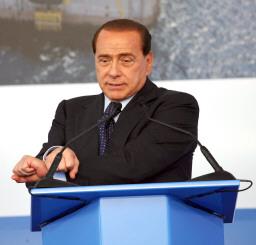The National Association of Magistrates (ANM) on Monday said it was ''fundamental'' for the Constitutional Court to do its job ''in peace'' after Premier Silvio Berlusconi appeared to threaten a shake-up of the legal system if the court did not OK a law granting him immunity from prosecution.
Berlusconi said Sunday he was ''absolutely convinced'' that the court wouldn't object to the law, but that if they did ''a deep reflection on the entire judicial system'' would be necessary.
Opposition politicians immediately hit out at the premier for threatening the court at the weekend, describing his words as ''unacceptable''.
''This is an extremely serious attempt by Berlusconi to intimidate the Constitutional Court,'' said Democratic Party vice-president Dario Franceschini.
Italy of Values House whip Massimo Donadi said the prime minister's comments ''confirm once again his intention to bend justice to his own ends''.
The row broke out after the prosecutor in two ongoing corruption trials against Berlusconi, Fabio De Pasquale, argued in both trials that the immunity law is unconstitutional.
Judges presiding over a trial into alleged irregularities in the purchase of film rights for his Mediaset media group agreed on Friday to send the law to the Constitutional Court for examination.
On Saturday judges at a second trial into an alleged bribe paid by Berlusconi to British coroporate lawyer David Mills said they would decide on October 4 whether they will do the same.
Defendants in both cases deny wrongdoing.
The so-called Alfano Law, which was passed in July, gives immunity to Italy's top four institutional figures - the president, the premier and the two parliamentary speakers - while in office.
It was framed to overcome constitutional difficulties in an earlier law, the Schifani-Maccanico Law, which was passed in June 2003 and declared unconstitutional in January 2004.
Justice Minister Angelino Alfano this weekend also expressed confidence that the Constitutional Court would find nothing to object to in the text of the new immunity law, which he said had been created ''with deferent respect'' to the court's objections to the Schifani-Maccanico Law.
Opposition politicians have always claimed the law was tailor-made to help Berlusconi escape from his corruption trials, but the government says the measure brings Italy into line with other European countries.
Berlusconi has called the Alfano Law ''the least a democracy could do in defence of its freedom''.
He said the law would put an end to the ''unacceptable persecution'' he has allegedly undergone from left-wing magistrates since he first entered politics in 1994.










